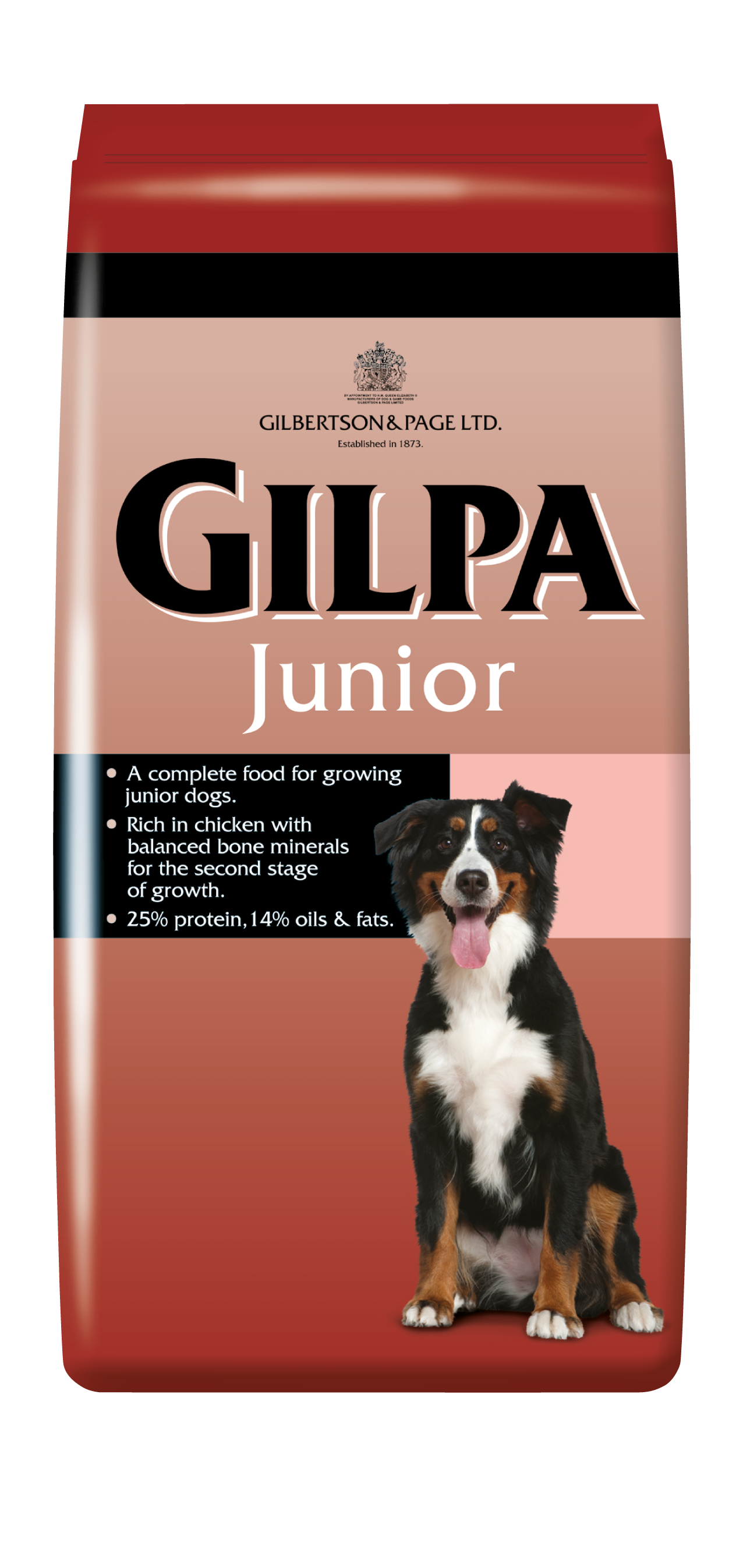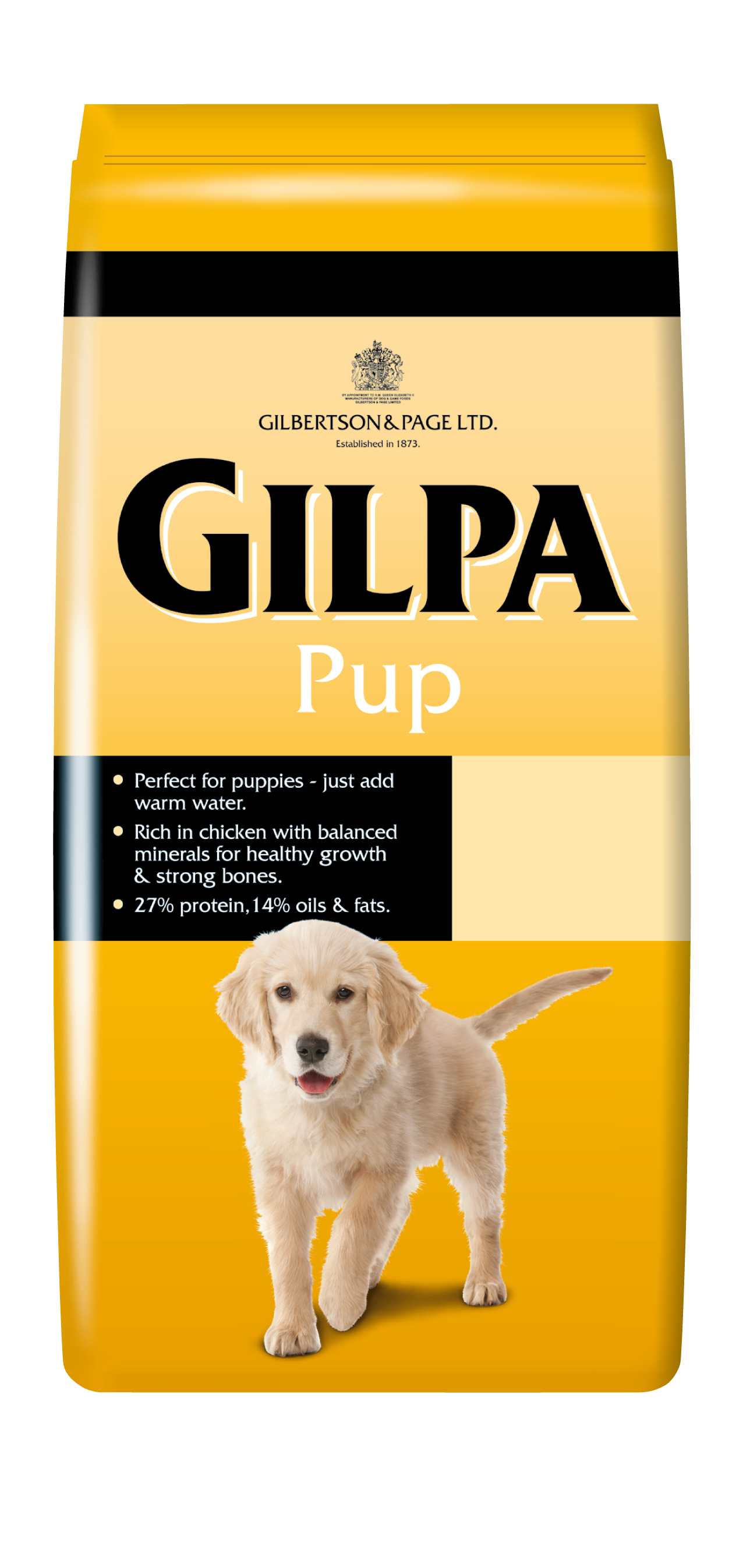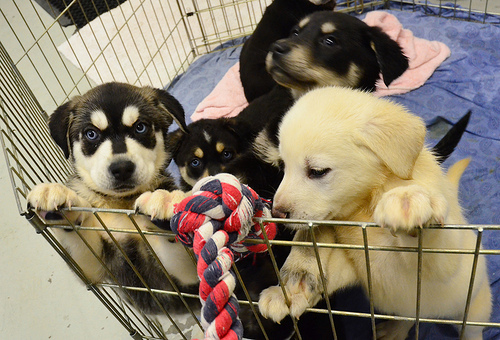What Makes A Good Dog Breeder?
13/03/2014
There are many reasons for wanting to buy a puppy over an older dog or rescue dog. You might like the idea that the puppy will be part of your family from its earliest days; you may be put off by the possibility of complicated health and behavioural issues that often come with older dogs or rescue dogs; you might like the idea of owning a particular breed; or you may wish to have a puppy with a particular lineage. Whatever the reason there are certain things that must be borne in mind when buying a puppy.
Puppies from an irresponsible dog breeder or puppy farm are not as physically healthy and will often struggle to deal with normal household and everyday situations due to lack of socialising. They are usually taken from their mothers too soon, which causes a great deal of fear and distress for both mother and puppies and leads to aggression and behavioural problems. These dog breeders have monetary gain at the forefront of their minds and care little about the welfare of the mother or the puppies.
By comparison, a good dog breeder cares for the mother and the puppies first and foremost, waiting until the right time to separate them and sending them out into the world to their new homes, equipped with basic skills and well socialised. They are ready to offer the new owners advice, support and expert knowledge of the breed. The puppies are healthy, up-to-date with vaccinations and free of physical and behavioural problems.

 Besides the obvious need to nurture a puppy’s physical health, dog breeders are also responsible for a puppy’s psychological health. The first 12 weeks of a puppy’s life are when its basic psychological development starts and when all its formative behaviour patterns are instilled. As most new owners take their puppies home at around 8-10 weeks, the time that a puppy spends with the breeder will have most influence on the puppy in later life. Socialising is arguably the most important job of the dog breeder and shapes the way a puppy will deal with the people and situations it meets when it leaves its mother. As such the dog breeder will undertake a gradual introduction to real life for the puppy.
Besides the obvious need to nurture a puppy’s physical health, dog breeders are also responsible for a puppy’s psychological health. The first 12 weeks of a puppy’s life are when its basic psychological development starts and when all its formative behaviour patterns are instilled. As most new owners take their puppies home at around 8-10 weeks, the time that a puppy spends with the breeder will have most influence on the puppy in later life. Socialising is arguably the most important job of the dog breeder and shapes the way a puppy will deal with the people and situations it meets when it leaves its mother. As such the dog breeder will undertake a gradual introduction to real life for the puppy.
At first the breeder will simply handle each puppy every day before introducing new and interesting items into the puppy’s bed. Then they will start introducing the puppies to different areas of the house and the different noises and smells associated with them, for example utility rooms with noisy washing machines and tumblers, living rooms with televisions, computer games and phones. They will arrange for visitors to come round so that the puppies get used to different people, especially babies, toddlers, children, teenagers and adults of all shapes and sizes. They should take them out for short car journeys and trips to the shops or the park, though they may need to be carried if they haven’t been vaccinated yet and will be in areas where other dogs may have toileted. They will also be introduced to other animals; cats, other dogs, small pets like rabbits and guinea pigs or larger animals like horses and ponies.
This socialising is vital to ensure a well adjusted puppy that is ready to leave its mother. The dog breeder will also want to make sure that the puppy is going to a good home, to owners whose lifestyle is suited to the breed, where it will grow up happy and secure. When considering using a dog breeder there are some essential things to look for. They will:
- Choose healthy parents with good temperaments that display the attributes of their breed.
- Wait for the right time to breed and won’t breed to order.
- Be knowledgeable about the breed and will advise on whether it will suit your lifestyle. They will be concerned for the puppy’s sake whether it will be happy with you in your home.
- Allow you to see mother and puppies together so that you can rest assured they aren’t a puppy farm.
- Have a family home and/or will ensure puppies are socialised well with a variety of people of different ages. They will also get the puppy used to other animals, every day situations, areas of the house, car travel, visits to the veterinary surgery, handling by other people and as many sights, sounds and smells as possible.
- Begin the weaning process, introducing the puppy to a good quality, nutritionally-balanced dog food that is specifically designed for puppies and young dogs, such as Gilpa Pup. If this is a dry food they will most likely moisten it to make it more palatable for the puppy. They will also advise the new owners on what to look for in a good dog food, such as vitamins, minerals and supplements for healthy bone and brain development.
- Have made a start on house-training, dividing areas into sleeping and toilet areas to encourage distinction in this respect, or may have moved onto taking them outside to go on waking, after food and at the end of the day, giving a treat when they ‘perform’ outside.
Buying a puppy is such a big decision to make that it is vital to make the right choice of breeder. Any responsible dog breeder won’t mind you asking a few questions about their practices. They should recognise that you are as concerned about dog welfare as they are; a good quality in a potential dog owner. It may take time to find a good dog breeder and you may have to wait a long time for the opportunity to get a puppy, but if you have done your research well and they have fulfilled their part of the bargain, you will be getting a well-bred, well-socialised companion for life and it will be worth the wait.
You can find more information on this subject at the Kennel Club website or at the many breed association websites, where you’ll often find lists of well-regarded breeders.



